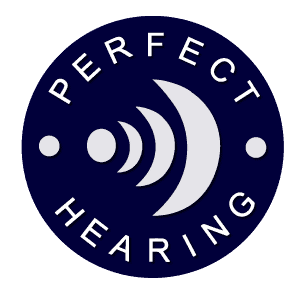Do you know that your nose and ears are connected? Your nasal sinus cavity connects to your eardrum, which can lead to hearing loss when you have acute or chronic sinusitis.
If you or someone you know is suffering from sinusitis, the best thing you can do is treat it before it causes irreversible damage, particularly in children.
What is Sinusitis?
Sinusitis is an irritation or inflammation of the sinus cavity, which is the air pocket behind the eyes and the nose’s bones. A runny nose, headaches, postnasal drip, coughing, and congestion are common signs of both acute and chronic sinusitis.
The distinction between acute and chronic is based on how long their courses last. For example, chronic refers to a long-lasting condition, while acute refers to a condition that lasts less than eight weeks.
Although people with acute sinusitis can suffer temporary hearing loss, after the infection passes, their capacity to hear normally returns. When accompanied by an ear infection, chronic sinusitis may develop from a temporary hearing loss to a permanent hearing loss.
How Sinusitis Affects Your Hearing
Sinusitis develops as the Eustachian tube gets obstructed or malfunctions. The Eustachian tube connects your nose to your middle ear and is a narrow canal.
It helps to equalize pressure in the middle ear. If sinusitis is not handled correctly or is left untreated for an extended period, it may cause temporary or permanent hearing loss.
When a sinus infection travels to the ear, particularly the middle ear, hearing loss occurs. Fluid builds up in the sinus cavities due to pressure from the infection overflowing over into the Eustachian tube.
Fluids block the middle ear and build up pressure in the eardrum as the Eustachian tube swells, creating inflammation and hearing loss.
Hearing usually recovers after the fluid leaves the eardrum in acute sinusitis, although some of the fluid can linger in the ear in young children who are growing and developing, triggering long-term hearing loss.
How to Treat Sinusitis Hearing Loss?
To treat sinusitis hearing loss, first, treat the sinus infection. Antibiotics, antihistamines, and decongestants prescribed by an ENT specialist will help you get rid of the bacterial infection. After that, the hearing can begin to return to normal.
While it is important to discuss your questions with an ENT specialist, you can alleviate sinus congestion by doing the following:
1. Use Humidifiers and Nasal Sprays
When it comes to sinus symptoms, moisture may be a lifesaver. Nasal sprays or a wet washcloth applied to the face may help ease the pressure. In addition, using a humidifier in your bedroom at night can add moisture to the air and help you sleep better.
2. Position Your Head Correctly
Maintain a straight line of sight. Bending forward or leaning down with your head down can transfer all of the pressure to your head, exacerbating the issue. Avoid certain kinds of movements that add pressure to your head whenever possible.
3. Avoid Extreme Temperature
A very hot or cold day can aggravate the sinus symptoms. In these cases, do your best to remain indoors until the symptoms start to fade.
4. Avoid Travelling by Air
This one can be tough as you may already have arrangements. Plane trips should be avoided at all costs since they can just exacerbate the pressure in the sinuses. If you must fly, use a nasal spray or take a decongestant at least 30 minutes before takeoff.
How to Prevent Sinusitis
Sinusitis may be prevented by avoiding things that irritate the nose and sinuses.
a. Cigarettes should be avoided at all cost
Cigarette smoke makes you more susceptible to sinusitis. The normal defensive elements in your nose, mouth, throat and respiratory tract are all harmed by smoking. It is a crucial step in avoiding both acute and chronic sinusitis episodes.
b. Keep your hands clean at all times
Wash your hands regularly, particularly during cold and flu season, to prevent viruses or bacteria on your hands from irritating or infecting your sinuses.
c. Take flu shots
If you have allergies, you will require allergy immunotherapy injections or other medications by an allergy specialist. Keeping the allergies under check will prevent sinusitis.
Final Thoughts
Sinusitis is a condition that should be taken seriously. If the ear congestion persists for more than two weeks or is accompanied by headache, fluid drainage, hearing loss, coordination issues, or serious ear discomfort, see an ENT specialist immediately.
After the condition is treated, you can request for a hearing test to ensure that your hearing has returned completely.

